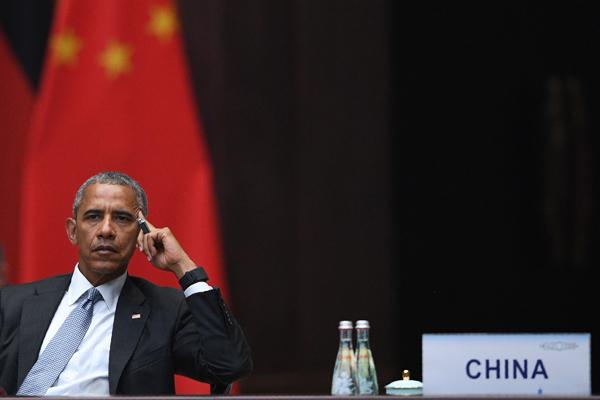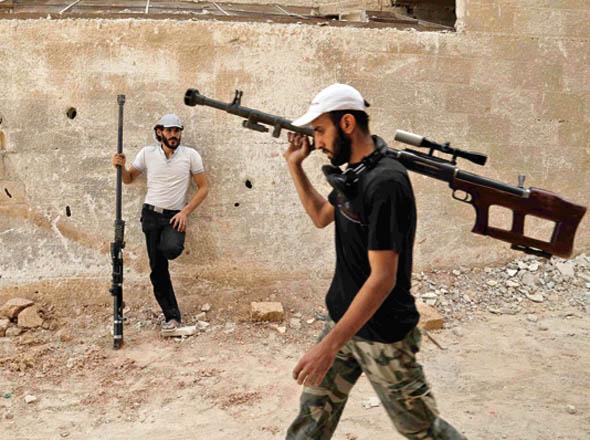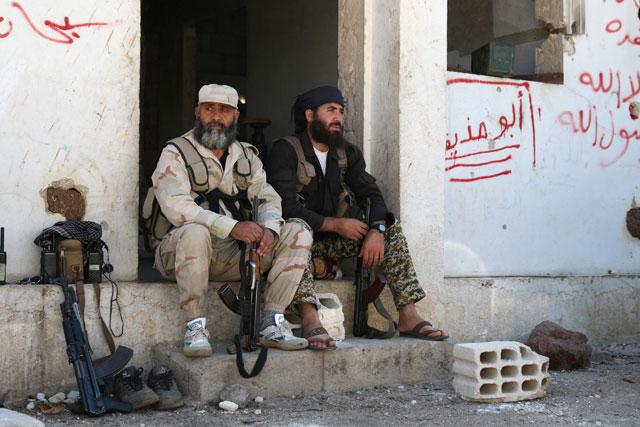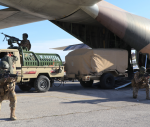You are here
Syria, refugees and Obama's farewell in UN spotlight
By AFP - Sep 17,2016 - Last updated at Sep 17,2016
UNITED NATIONS — With a fragile truce holding in Syria, world leaders will set their sights on ending the five-year war and easing the refugee crisis when they meet this week for their annual gathering at the United Nations.
US President Barack Obama and UN Secretary-General Ban Ki-moon will be making their farewells at the UN General Assembly meeting, offering parting words at a time of global turmoil.
Before the marathon of speeches begins on Tuesday, the first-ever UN summit on refugees and migrants is set to agree on an international response to the largest displacement crisis since World War II.
Some 65 million people are on the move worldwide, fleeing wars such as the carnage in Syria, repression and poverty, including 21 million refugees competing for too few resettlement opportunities.
At the summit on Monday, the UN's 193 member countries are expected to adopt a political declaration that human rights groups have already said falls far short of breaking new ground to ease the refugee crisis.
The following day, Obama is scheduled to host a second summit at which some 40 countries will make new offers of aid, either by taking in more refugees or supporting access to education and jobs.
"We are not going to solve the refugee crisis on Tuesday, but I think you will see an important show of political will from leaders around the world," US Ambassador Samantha Power said.
At issue is sharing the burden from the huge refugee flow.
Only eight countries currently host more than half the world's refugees: Turkey, Pakistan, Lebanon, Iran, Ethiopia, Jordan, Kenya and Uganda.
Six of the world's richest countries — the United States, China, Japan, Britain, Germany and France — hosted only 1.8 million refugees last year, just 7 per cent of the world total, according to research by the British charity Oxfam.
The United Nations will also launch a new global campaign against xenophobia at a time when the US presidential election campaign is being roiled by candidate Donald Trump's calls to bar Muslim visitors from the United States and keep Mexican migrants out by building a wall along the border.
Addressing the war in Syria
The refugee summits should deliver not just "an increase in compassion, and a rejection of xenophobia", said Simon Adams, director of the Global Centre for Responsibility to Protect.
UN member states must also "politically and financially reinvest in resolving the conflicts that cause people to flee in the first place".
Now in its sixth year with more than 300,000 dead, the war in Syria is set to top the agenda on Wednesday when the Security Council meets to hear about the US-Russian agreement, the latest attempt to end the fighting.
After a ceasefire deal went into force on Monday, US Secretary of State John Kerry and Russian Foreign Minister Sergei Lavrov are to address the council on the next steps in the difficult search for a settlement.
Negotiated over several months, many details of the deal calling for aid deliveries and US-Russian military cooperation against Islamist rebels have yet to be made public. Russia is nevertheless pushing the council to adopt a resolution endorsing the agreement.
If aid reaches Syria's besieged areas and the truce holds, peace talks may begin against next month.
Brazil's Michel Temer, fresh from the impeachment trial of his predecessor Dilma Rousseff, will be first at the UN podium, followed by Obama, set to deliver his final address to the United Nations before stepping down in January.
He will make a "closing argument" about the importance for all countries to be internationally engaged and "make the case for not pulling back", Power said.
With only three months to go in his 10-year term, Ban is also set to deliver his final address, pushing for early ratification of the Paris climate deal, which he considers his crowning achievement.
Other closely watched leaders include Canadian Prime Minister Justin Trudeau, who will deliver his first address at the gathering, Turkish President Recep Tayyip Erdogan, speaking after a failed coup d'etat attempt in his country, and British Prime Minister Teresa May, who will address the "Brexit" aftermath.
Related Articles
HANGZHOU, China — The United States and Russia struggled on Sunday to keep alive negotiations to end the bloodshed between US-backed rebels
WASHINGTON — The Trump administration has decided to halt the CIA's covert programme to equip and train certain rebel groups fighting the go
WASHINGTON — Saturday's deal to renew a nationwide truce in Syria, open aid routes and establish a US-Russian military partnership may

















